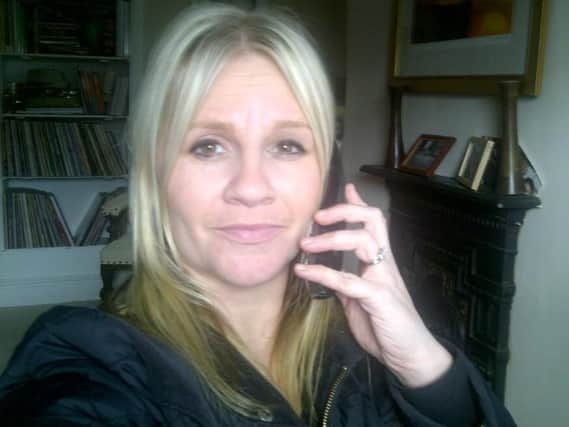Lancaster woman's warning about aggressive bone cancer


But at 28-years-old, a Lancaster woman didn't even have the strength to feed her own baby.
A new mum to a tiny six-week-old girl, Siobhan Taylor discovered she had a rare form of bone cancer.
Advertisement
Hide AdAdvertisement
Hide AdThe mum-of-two, now aged 45, found a lump on her leg while pregnant with her first child. She was advised by doctors to wait till her baby was born before undergoing tests, which she agrees was "the right thing to do".
Six weeks after the birth, a midwife urged her to have the lump checked out. One week later, she was diagnosed with an aggressive type of bone cancer called osteosarcoma. The condition usually develops in growing bones and is most common in teenagers and young adults. It is most often found in the arms or legs, particularly around the knee joint.
"It was really hideous as it completely took over my life," said Siobhan, who owns The Eventus Recruitment Group. "I wasn't able to walk or feed my child because I was so ill. I developed a couple of infections too."
She underwent six months of chemotherapy, and had all of her fibula bone and 30% of the muscles in her leg cut out.
Advertisement
Hide AdAdvertisement
Hide AdBefore her diagnosis, Siobhan showed no other signs of cancer, and felt no pain until towards the end. Despite this, an X-ray revealed a nine inch tumour on the bone of her leg.
"At 28, I was a lot older than most patients with osteosarcoma, as it's mainly a teenage cancer, which often gets misdiagnosed as growing pain," she said.
"I was one of the oldest people to have it.
"People aren't aware of this kind of cancer, so if you're a parent or patient and unhappy with the diagnosis, then ask for an X-ray.
"My GP had been practising for many years but had never come across it until my diagnosis."
Advertisement
Hide AdAdvertisement
Hide AdNow 17 years clear of cancer, Siobhan said she was one of the lucky ones and cannot praise the NHS enough.
But national charity, the Bone Cancer Research Trust, has revealed a different story for many other patients nationwide.
A survey of 394 primary bone cancer patients, survivors and bereaved families showed one in four patients (26%) had waited more than seven months before receiving a diagnosis – with 13% waiting over a year.
It also revealed a quarter of all patients (26%) made seven or more visits to their GP or other healthcare professional before receiving a diagnosis.
Advertisement
Hide AdAdvertisement
Hide AdThe charity is now highlighting the "red flag" signs of osteosarcoma and calling on all GPs to complete its free E-learning module, developed in partnership with the Royal College of General Practitioners. The goal is to speed up the rate of diagnoses and avoid the need for amputations as a means of survival.
Zoe Davison, the charity's head of research and information, said there can be a lack of awareness of the symptoms among GPs and other healthcare professionals, as medical students receive no formal training on primary bone cancer during their education.
She added: "We found the survey results worrying and we’re keen to ensure the disease is diagnosed at the earliest opportunity.
"Our E-learning resource is a great way to address this [issue], and those who’ve completed the module see a 70 per cent increase in their understanding of the symptoms that can present with this brutal form of cancer.”
Advertisement
Hide AdAdvertisement
Hide AdA spokesperson for the Bone Cancer Research Trust said there are only five main bone cancer treatment centres in the UK: Newcastle, Oswestry, Birmingham, Oxford and UCL London.
They added: "Patients in Lancaster have to travel quite far for their main treatment which can put considerable extra financial burden and pressure on families being treated for primary bone cancer in Lancashire."
According to the charity, patients are faced with a five-year survival rate of just over 50%.
Siobhan said: "Raising awareness is the key to saving a life and we need to talk about it in schools, as it's so common in that age group.
"I was one of the lucky ones and NHS staff were my absolute gods."
The module and further information about symptoms can be found on www.bcrt.org.uk/gp